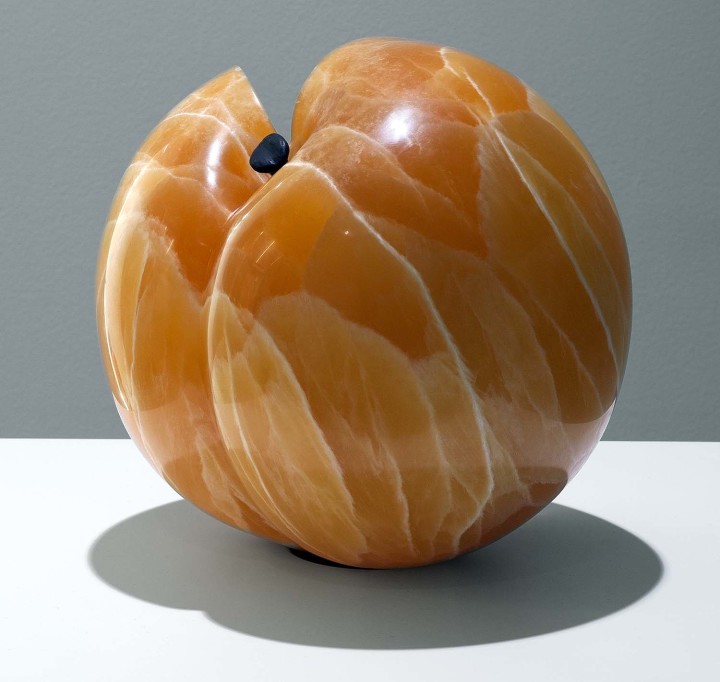The uncanny intimacy and sensuality of the exhibition “Seven Sisters” reflects a narrative rooted in womanhood, the need to construct one’s personal space for creation, and the constant battle for control over one’s own life. The show presents the works of six female artists, most of them born in the 1970s and 1980s.
The inspiration behind the exhibition is the “black protest” — a nationwide strike, led by women, which took place across Poland in October 2016. Tens of thousands of people dressed all in black carried black umbrellas to show their stance against antiabortion legislation. Curator Martha Kirszenbaum makes reference to this position of opposition — defending the basic right to control one’s own body — while focusing on pieces that also reflect on the physicality and beauty of the female body.
The repetition of a single theme — the mouth — makes itself apparent in the erotic alabaster sculpture Queen (2016) by Nevine Mahmoud, alongside Liz Craft’s Ashtray Table (2014), in which the latter plays with aspects of form and function. In Barbara Leoniak’s Metamorphosis (2017), two heads connected by a single swanlike neck suggest a phallus. The most dominant work in the show is Ketuta Alexi-Meskhishvili’s installation, which comprises a Woolfian “room of one’s own” delineated by semi-sheer cotton curtains imprinted with abstract patterns. In the room stands her analog selfie, titled Monitor 1 (2016) — whose sensuality is heightened by visible fingerprints.
The selection of formal works is consummated by a projected work by French artist Mélanie Matranga. Her video You (2016) refers to the cinematic aesthetics of the New Wave, formulating an account of the emotional perplexities of four young characters involved with one another across a range of sexual configurations. The message regarding the right to decide what one does with one’s body and sexuality is one of the essences of this work, reinforcing the overarching premise of the entire show.


